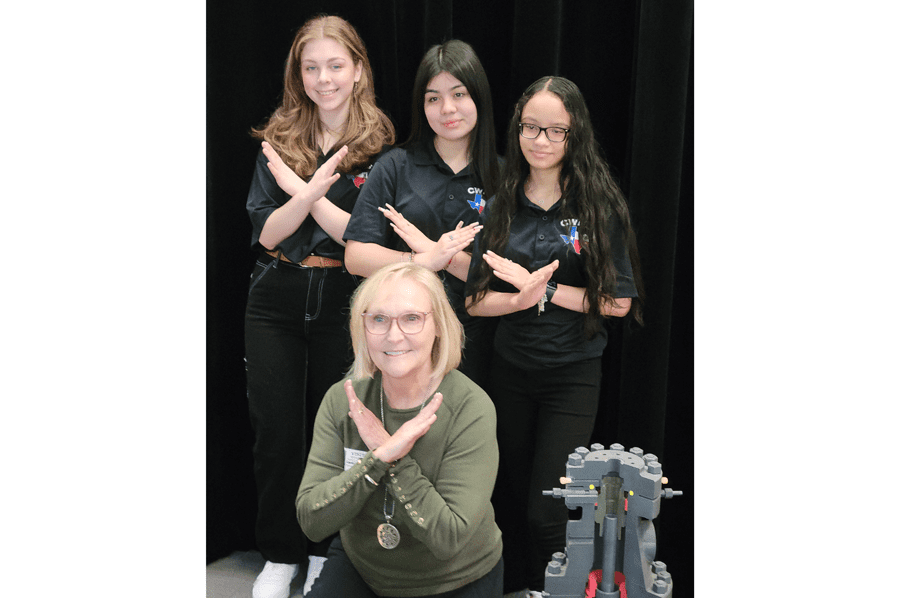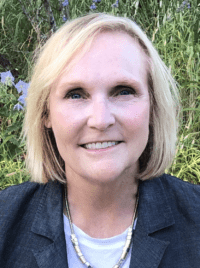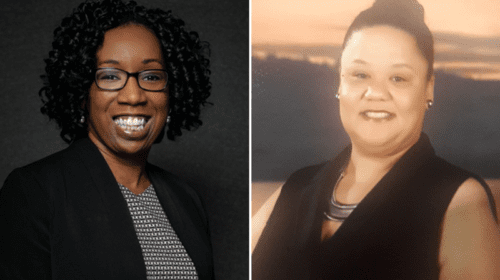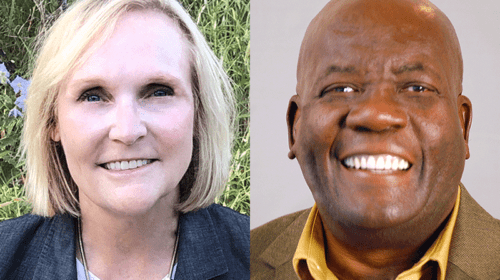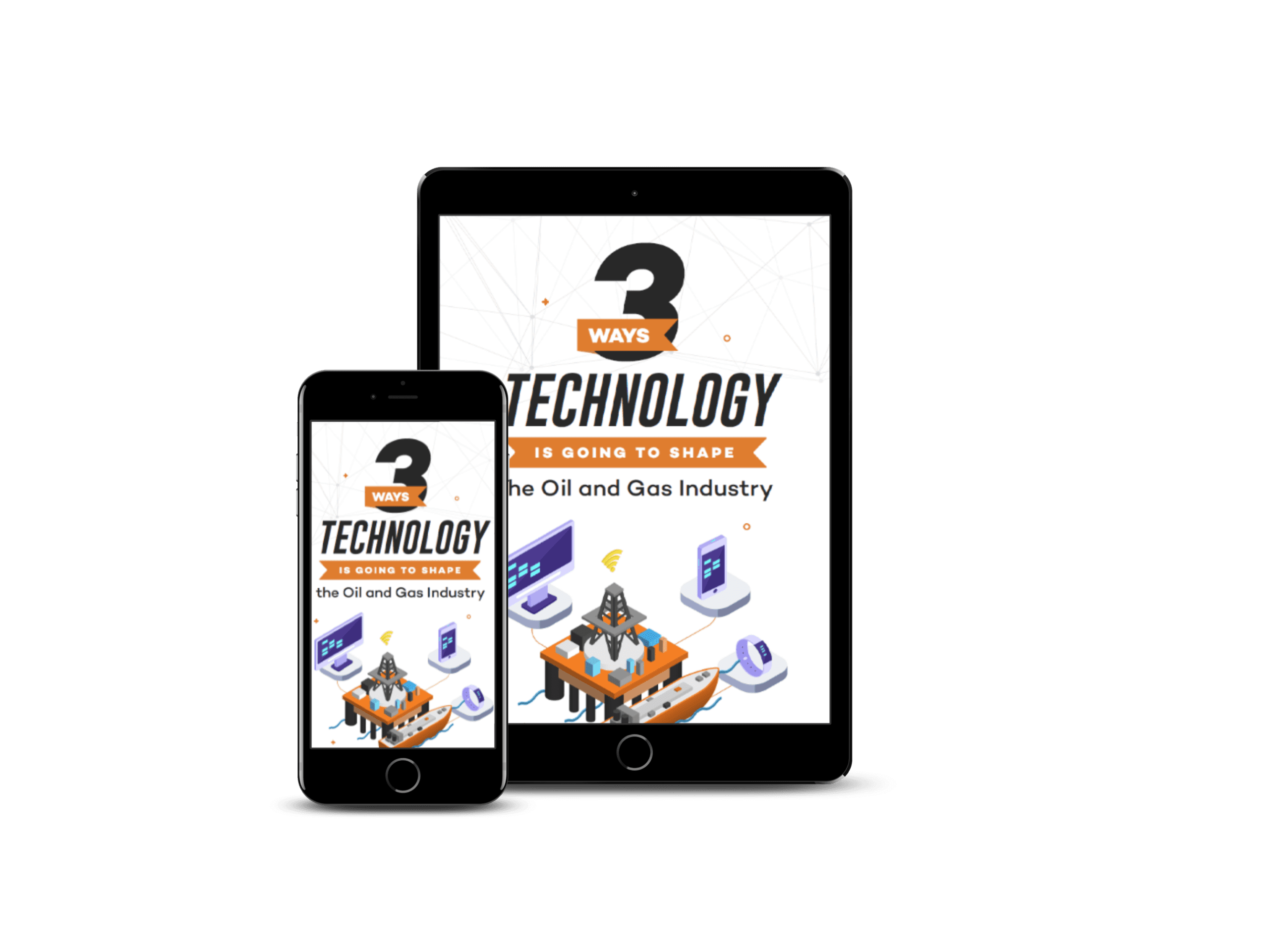The oil and gas industry is at risk of starving as meeting its basic needs is becoming more difficult. “Keep it in the Ground” activism limits access to unproduced hydrocarbons. Investment capital to fund new wells and facilities is drying up as financial institutions and private equity adopt de-capitalization strategies. Then there’s the shortage of a company’s most valuable asset – people. Almost two-thirds of Gen Z respondents in a 2017 EY survey found a career in oil and gas to be unappealing.
Kylie Khalil, part of the youngest of the Gen Zers, says, “I’ve been interested in the environment since I was a little girl. The oil and gas industry will be around for a while, and I want to help companies improve their environmental performance and reduce GHG emissions – from the inside.”
Kylie, a sophomore, and her teammates, Christi-Marie Changoor and Jennifer Castro, both juniors, are all students at Carl Wunsche High School in Spring, Texas. They have a passion, and a plan, for attracting more students, particularly young women, to the petroleum industry. This dynamic trio is indifferent as to whether they represent a shift in perceptions of the youngest Gen Zers or if they’re just outliers. They believe the industry will be part of an optimized energy transition solution where professionally fulfilling and lucrative careers can remain accessible to young people while the world transitions to a less carbon intensive energy supply.
Jennifer says, “I grew up with no exposure in my family to STEM related careers but, living in Houston, I knew a little about the oil and gas industry. It seemed interesting and I was curious. There seemed to be many different jobs, not all just men on drilling rigs. Also, it seems like you can get a good paying job with just a four-year bachelor’s degree or even with no college degree.”
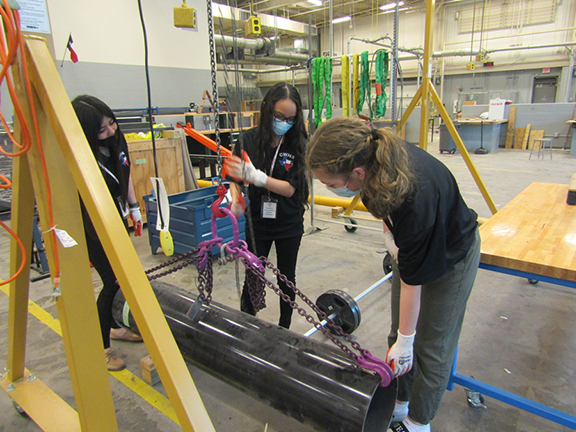

As it turns out, Jennifer’s speculation about oil and gas industry jobs is confirmed by the U.S. Bureau of Labor Statistics. Data shows that petroleum engineers ranked #10 in the list of highest paid jobs in Texas. Seven of the remaining jobs in the top 10 were doctors or dentists, careers which require a minimum of seven to eight years of post-secondary school education. And, if there are no savings available for a four-year bachelors’ degree, there are opportunities right out of high school for careers with upward mobility.
Mr. Bobby Bruce, Oil and Gas Industry instructor, reports that last year two 2021 graduates from his Wunsche Oil and Gas Pathway joined Baker Hughes’ Drill Bit Team in The Woodlands, Texas. Both were pleasantly surprised when they compared their salaries and benefits with family and friends working in the construction industry.
Christi, Jennifer and Kylie know their positive perception of the industry isn’t shared by many of their peers. Christi, who serves as president of Wunsche’s SkillsUSA Oil and Gas Chapter, recalls the comments she often hears. “You’ll be hurting the environment. You’ll be responsible for oil spills and climate change.”
She continues with her thoughts on these comments. “When mistakes are made, oil and gas companies take responsibility and do what is needed to clean up and minimize damage to the environment. I’m pretty sure every industry makes mistakes, but oil and gas mistakes are publicized heavily on television, so everyone becomes aware of them.”
These young women believe it’s important that younger students see a more balanced picture of the industry than just the negative one, which is so often broadcast on the nightly news and in social media feeds. They plan to step up their efforts to advertise the many different types of careers available, the good salaries, and the opportunities to influence oil and gas companies’ evolution to have a lower carbon footprint. A key part of their strategy might be summarized as start young and have fun.
Christi, Jennifer and Kylie are building a traveling exhibit to share some of Wunsche’s more interesting STEM and petroleum industry related equipment with students at other schools. Later this year, they’ll use a trailer to ferry equipment to junior high and elementary school campuses in the Spring Independent School District. Based on personal experience, they’re confident younger students will see STEM differently when they set off loud buzzers and turn on light bulbs using Amatrol’s interactive Electric Relay Control Unit.
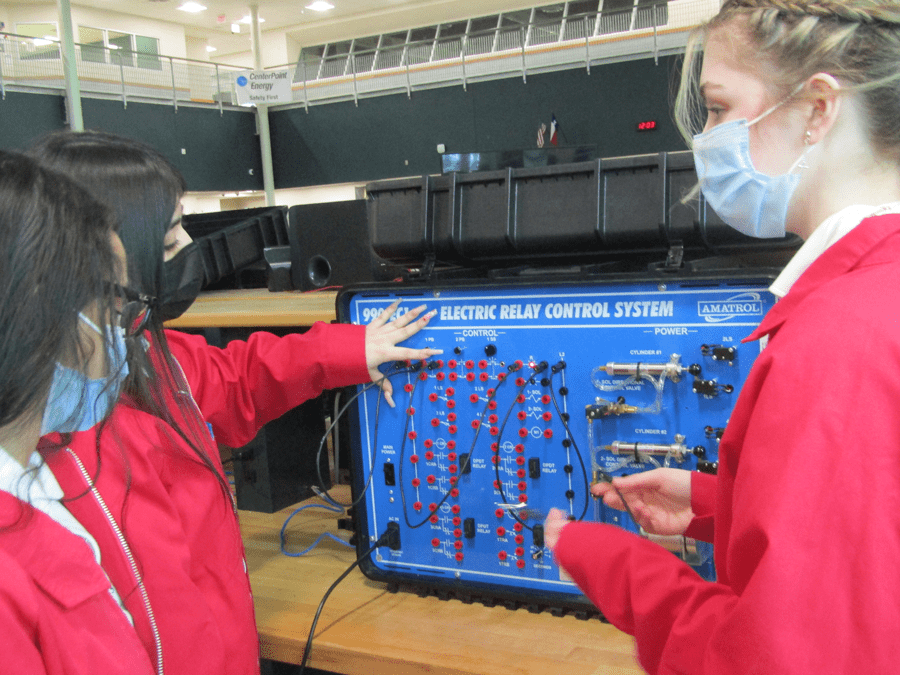

As the trailer is loaded for each visit, the girls will have plenty of inventory from which to choose. In the last five years, and with the support of companies such as ExxonMobil, bp, Baker Hughes and Schlumberger, Mr. Bruce has assembled quite the collection of retired oilfield equipment, dozens of which now reside in Wunsche’s onsite Petroleum Plaza and Back Shop. These hybrid museum/learning laboratories are now home to items as “small” as a drill bit and as large as 33-feet-long mud motors.
In conjunction with elevating the stature of the oil and gas industry, Christi, Jennifer and Kylie are also on a bit of a DEI crusade. Plans are underway for a summer STEM camp for girls ages five to12. In addition to all the technical stuff, they’ll use the forum to have conversations about the challenges of being a female in what sometimes still feels like a “man’s world.” As much as they enjoy oil and gas experiences, the three young women express shock at how differently their male peers sometimes treat them.
“Mr. Bruce assigned a teamwork activity in oil and gas production class. He instructed us to work together to count the electrical system lead wires, separate similar wires into bundles of the same number, and then store the bundles. The guys gravitated [toward each other], so the exercise ended up being two groups – guys and girls. Despite attempts to communicate between the groups, when all the wires were bundled, each bundle did not have the same number of wires. Even before checking their bundles, the guys accused the girls of either miscounting or miscalculating. The girls replied, ‘We’re pretty sure we can count and do simple division!’”
Christi, Jennifer and Kylie are warriors taking on some big societal challenges. They behave a little like warriors, undeterred by the enormity and complexity of the task. Perhaps their strength and perseverance can be summed up in Christi’s story.
“Both of my parents worked in the oilfield in Trinidad, where I was born. I liked going to work with my Dad who was a petroleum engineer. He would say, “This is my daughter and someday she will take my place and be your boss!” That sounded like a great plan to seven-year-old me. I was confused by the reaction of the other men in the shop who did not share my Dad’s enthusiasm. Their comments and looks made me feel unwanted and the thought of me being in charge seemed especially distasteful to them.”
Christi summarizes her personal determination and, seemingly, that of her two partners, as well, with a wicked little grin and twinkle in her eyes.
“Just tell me I can’t do something!”
Headline photo – L to R: JoAnn Meyer (front), founder of Previse Consulting, is shown with Kylie Khalil (sophomore), Jennifer Castro (junior) and Christi-Marie Changoor (junior) at Carl Wunsche High School in Spring, Texas. Photos courtesy of Michael Harman (senior), Wunsche High School.
JoAnn Meyer is a change consultant with 30 years in the energy sector. To learn more about Meyer, visit www.previseconsulting.com and connect with her on LinkedIn at www.linkedin.com/in/joann-meyer-previse.
Oil and gas operations are commonly found in remote locations far from company headquarters. Now, it's possible to monitor pump operations, collate and analyze seismic data, and track employees around the world from almost anywhere. Whether employees are in the office or in the field, the internet and related applications enable a greater multidirectional flow of information – and control – than ever before.

